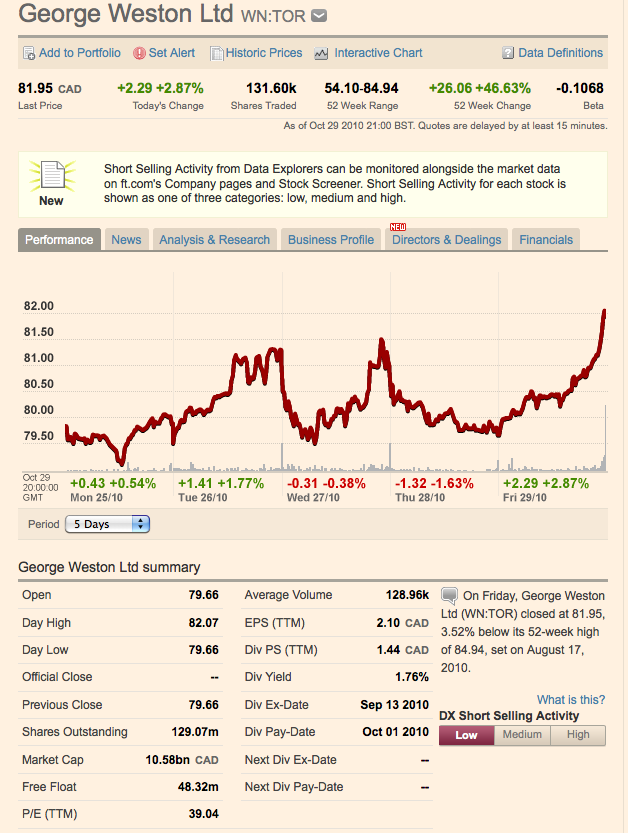Girl Scout Cookies, Capitalism, and Cookie Dividends
A family member of mine has a daughter who is selling Girl Scout cookies. To help, I decided to buy half-a-dozen boxes of cookies.
I figured I’d stick them in the break room at the office or in the pantry at home even though, honestly, the only ones in which I have an interest are the Lemon Chalet filled ones, which will go great with black coffee (seriously, lemon or banana flavors make me very happy). Aaron will probably eat all of the Thin Mints in a single afternoon because he is crazy about chocolate and mint combined (I don’t get it. Really, I don’t.)
Because I am … well, me … I wanted to know who profited from the purchase on the baker side. A few business filings later and it turns out, Girl Scout Cookies are mostly baked by a company called ABC Smart Cookie, which is a subsidiary of Interbake Foods LLC, which is a subsidiary of Weston Foods U.S., which is owned by (sound of trumpets) George Weston Ltd., a publicly traded Canadian company with shares changing hands on the Toronto stock exchange, currently priced at $81.95 Canadian dollars with annual dividends of $1.44 Canadian. The company has a market capitalization of $10.58 billion Canadian dollars so it’s big. But, I supposed if you’ve been baking cookies for almost 100 years, that certainly is enough time to compound your shareholders’ capital into something meaningful.
 Here’s what I love. Somewhere out there, some guy owns 1 million shares of George Weston Ltd. Each year, he gets a dividend check for $1,440,000 Canadian dollars. And part of that came from baking girl scout cookies so he is, quite literally, making a profit each and every time someone buys a box of those delicious treats. It’s almost so beautiful it makes me want to sing. How can that not excite you? To collect almost $4,000 per day from cookies!?
Here’s what I love. Somewhere out there, some guy owns 1 million shares of George Weston Ltd. Each year, he gets a dividend check for $1,440,000 Canadian dollars. And part of that came from baking girl scout cookies so he is, quite literally, making a profit each and every time someone buys a box of those delicious treats. It’s almost so beautiful it makes me want to sing. How can that not excite you? To collect almost $4,000 per day from cookies!?
That is what I love about capitalism and free market economies. If you have the cash to buy a share of the stock, you get the dividend. The stock doesn’t know if you are male or female, rich or poor, black or white, gay or straight, a Ph.D. or high-school drop-out, attractive or ugly, thin or fat, old or young, American or Chinese. YOU own it and YOU get the profit because YOU decided to put your money to work instead of squandering it on alcohol or cigarettes like everybody else. (Okay, wait … now that we own cigarette and tobacco stocks, maybe that isn’t the best example to use.)
The stock can’t say, “Sorry, but we don’t think you get along well enough with people” or “You know, maybe next year you’ll get that promotion”. The stock may rise or it may fall. It may double or it may go bankrupt. But it is up to you and you alone to determine whether you think the risks of ownership, at the current price, are attractive or not (frankly, the high p/e ratio makes me do a double take on this one but I haven’t read the report to see if there is something else going on like artificially depressed profits or a one-time write-off of goodwill or something).
Capitalism is the great equalizer, sorting people through meritocracy. A plumber who saves his money and regularly takes his cookie dividends, using them to buy more ownership of his cookie factory, would be able to do well, while an upper-class cocaine addict who failed out of law school will be dodging bill collectors. Sure, there are some exceptions, but in an imperfect world anything that works a vast majority of the time is certainly worth keeping.



